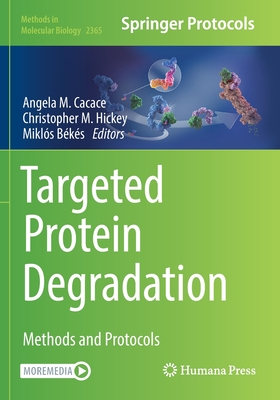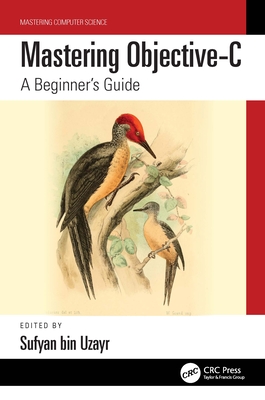图书简介
This volume contains a collection of innovative techniques for studying targeted protein degradation. Chapters guide readers through heterobifunctional proteolysis-targeting chimeras (PROTACs) approaches, E3 ligase, E3 ligase-induced ubiquitylation, proteomic approaches, novel degrader molecules, molecular glue, and stabilize binding interaction between a target and E3 ubiquitin ligase. Written in the format of the highly successful Methods in Molecular Biology series, each chapter includes an introduction to the topic, lists necessary materials and reagents, includes tips on troubleshooting and known pitfalls, and step-by-step, readily reproducible protocols. Authoritative and cutting-edge, Targeted Protein Degradation: Methods and Protocols aims to ensure successful results in this emerging field of drug discovery.
Part I Methods to Discover and Characterize Ligands for Targets and/or Ligases. 1. Protein Ligand Interactions Using Surface Plasmon Resonance Nichole O’Connell 2. High-Throughput Detection of Ligand-Protein Binding using a SplitLuc Cellular Thermal Shift Assay Tino W. Sanchez, Ashley Owens, Natalia J. Martinez, Eric Wallgren, Anton Simeonov, and Mark J. Henderson 3. Proteins and their Interacting Partners: An Introduction to Protein-Ligand Binding Site Prediction Methods with a Focus on FunFOLD3 Danielle Allison Brackenridge and Liam James McGuffin 4. Evaluating ligands for ubiquitin ligases using affinity beads Jennifer Dobrodziej, Hanqing Dong, Kurt Zimmermann, and Christopher M. Hickey Part II Approaches to Study Ligase:Degrader:Target Ternary Complexes. 5. Mechanistic and Structural Features of PROTAC Ternary Complexes Ryan Casement, Adam Bond, Conner Craigon, and Alessio Ciulli 6. MST and TRIC Technology to Reliably Study PROTAC Binary and Ternary Binding In Drug Development Tanja Bortoschik, Andreas Zoephel, Klaus Rumpel, Alessio Ciulli, and Charles Heffern 7. An in vitro Pull-down Assay of the E3 ligase:PROTAC:Substrate Ternary Complex to Identify Effective PROTACs Daniel P. Bondeson, Blake E. Smith, and Alexandru D. Buhimschi 8. Kinetic detection of E3: PROTAC: Target Ternary Complexes using NanoBRET technology in Live Cells Sarah D. Mahan, Kristin M. Riching, Marjeta Urh, and Danette L. Daniels Part III Approaches and Tools to Understand Ubiquitylation and Proteasomal Degradation 9. Inducing Ubiquitylation and Protein Degradation as a Drug Development Strategy Kamaldeep S. Dhami and XiaoDong Huang 10. Methodological Versatility of Tandem Ubiquitin Binding Entities (TUBEs) for Understanding Poly-ubiquitination and its Various Chains Katie J. Sheets, Patrick H. Gross, Myra J. Zerr, and Dahmane Ouazia, and Karteek Kadimisetty 11. Global Mass Spectrometry-Based Analysis of Protein Ubiquitination Using K-e-GG Remnant Antibody Enrichment Alissa J. Nelson, Yiying Zhu, Jian Min Ren, and Matthew P. Stokes 12. Determination of Proteasomal Unfolding Ability by Christina M. Hurley and Daniel A. Kraut Part IV Methods for Evaluating Protein Degrader Function 13. Methods for Quantitative Assessment of Protein Degradation Radoslaw P. Nowak, Hong Yue, Emily Y. Park, and Eric S. Fischer 14. A High Throughput method to prioritize PROTAC intracellular target engagement and cell permeability using NanoBRET by James D. Vasta, Cesear R. Corona, and Matthew B. Robers 15. Profiling CELMoD Mediated Degradation of Cereblon Neosubstrates by Joel W. Thompson, Thomas Clayton, Gody Khambatta, Leslie A. Bateman, Christopher W. Carroll, Philip P. Chamberlain, and Mary E. Matyskiela 16. Global Proteome Profiling to Assess Changes in Protein Abundance using Isobaric Labeling and Liquid Chromatography Tandem Mass Spectrometry by Anthony P. Possemato, Kathryn Abell, and Matthew P. Stokes 17. PHOTACs Enable Optical Control of Protein Degradation by Martin Reynders and Dirk Trauner 18. Protocols for synthesis of SNIPERs and the methods to evaluate the anti-cancer affects by Yoshinori Tsukumo, Genichiro Tsuji, Hidetomo Yokoo,Norihito Shibata, Nobumichi Ohoka, Yosuke Demizu, and Mikihiko Naito
Trade Policy 买家须知
- 关于产品:
- ● 正版保障:本网站隶属于中国国际图书贸易集团公司,确保所有图书都是100%正版。
- ● 环保纸张:进口图书大多使用的都是环保轻型张,颜色偏黄,重量比较轻。
- ● 毛边版:即书翻页的地方,故意做成了参差不齐的样子,一般为精装版,更具收藏价值。
关于退换货:- 由于预订产品的特殊性,采购订单正式发订后,买方不得无故取消全部或部分产品的订购。
- 由于进口图书的特殊性,发生以下情况的,请直接拒收货物,由快递返回:
- ● 外包装破损/发错货/少发货/图书外观破损/图书配件不全(例如:光盘等)
并请在工作日通过电话400-008-1110联系我们。
- 签收后,如发生以下情况,请在签收后的5个工作日内联系客服办理退换货:
- ● 缺页/错页/错印/脱线
关于发货时间:- 一般情况下:
- ●【现货】 下单后48小时内由北京(库房)发出快递。
- ●【预订】【预售】下单后国外发货,到货时间预计5-8周左右,店铺默认中通快递,如需顺丰快递邮费到付。
- ● 需要开具发票的客户,发货时间可能在上述基础上再延后1-2个工作日(紧急发票需求,请联系010-68433105/3213);
- ● 如遇其他特殊原因,对发货时间有影响的,我们会第一时间在网站公告,敬请留意。
关于到货时间:- 由于进口图书入境入库后,都是委托第三方快递发货,所以我们只能保证在规定时间内发出,但无法为您保证确切的到货时间。
- ● 主要城市一般2-4天
- ● 偏远地区一般4-7天
关于接听咨询电话的时间:- 010-68433105/3213正常接听咨询电话的时间为:周一至周五上午8:30~下午5:00,周六、日及法定节假日休息,将无法接听来电,敬请谅解。
- 其它时间您也可以通过邮件联系我们:customer@readgo.cn,工作日会优先处理。
关于快递:- ● 已付款订单:主要由中通、宅急送负责派送,订单进度查询请拨打010-68433105/3213。
本书暂无推荐
本书暂无推荐













